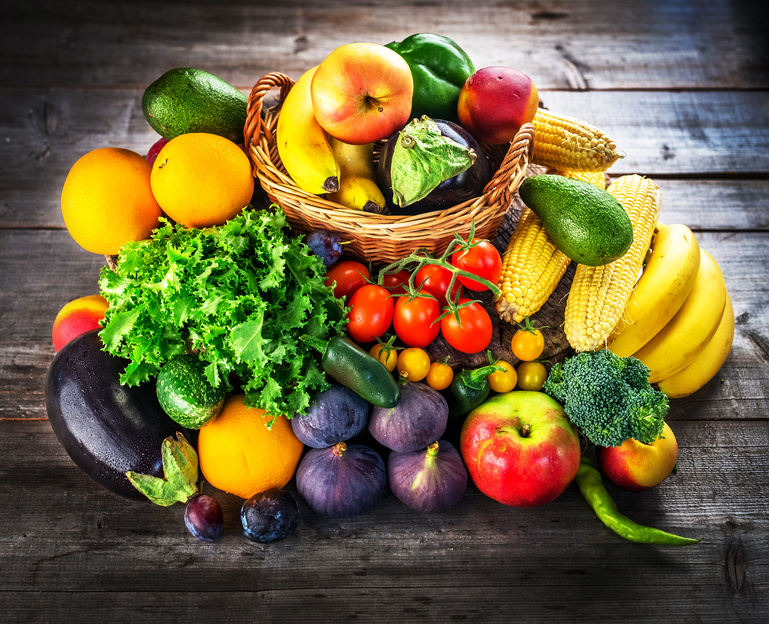What are phytochemicals?
Phytochemicals are naturally occurring compounds found in plants. They are not considered essential nutrients, as the human body does not require them for survival, but they have been shown to have a range of health benefits.
Phytochemicals include a wide variety of compounds, including carotenoids, flavonoids, phenolic acids, and phytosterols, among others. These compounds are responsible for the bright colors and flavors of many fruits and vegetables, and they play a role in protecting the plant from environmental stress and pathogens.
In the human body, phytochemicals have been shown to have a number of health benefits, including antioxidant and anti-inflammatory effects, and they may help to reduce the risk of certain diseases, such as heart disease, cancer, and diabetes.
It is important to note that while phytochemicals have been shown to have a number of health benefits, more research is needed to fully understand their mechanisms of action and to determine their efficacy in treating specific health conditions. The best way to get the benefits of phytochemicals is by consuming a variety of whole foods, rather than relying solely on supplements.

Potential health benefits of phytochemicals
The following are some potential benefits of phytochemicals:
- Antioxidant properties: Phytochemicals act as antioxidants, helping to protect cells from oxidative damage and reducing the risk of chronic diseases.
- Anti-inflammatory effects: Some phytochemicals have anti-inflammatory properties, which can help reduce the risk of certain diseases associated with inflammation, such as heart disease and cancer.
- Heart health: Some phytochemicals, such as flavonoids and anthocyanins, have been shown to have a positive effect on heart health by reducing blood pressure and cholesterol levels.
- Cancer prevention: Some phytochemicals, such as lycopene, have been linked to a reduced risk of certain types of cancer, such as prostate and breast cancer.
- Improved gut health: Some phytochemicals, such as polyphenols, have been shown to improve gut health by promoting the growth of beneficial bacteria and reducing inflammation.
- Improved brain function: Some phytochemicals, such as flavonoids, have been linked to improved cognitive function and reduced risk of cognitive decline.
- Improved skin health: Some phytochemicals, such as vitamin C, have been shown to improve skin health by reducing inflammation, promoting collagen production, and protecting against UV damage.
It is important to note that these potential benefits are still being studied, and more research is needed to fully understand the role of phytochemicals in human health.
Examples of phytochemicals
Phytochemicals are a diverse group of naturally occurring compounds found in plants. Some examples of phytochemicals include:
- Carotenoids: A group of pigments that give fruits and vegetables their bright red, orange, and yellow colors. Examples of carotenoids include beta-carotene, lycopene, and lutein. Carotenoids have been shown to have antioxidant properties and to help protect against certain types of cancer and eye diseases.
- Flavonoids: A large group of compounds that are widely distributed in the plant kingdom. Flavonoids are responsible for the bright colors of many fruits and flowers and have been shown to have anti-inflammatory, antioxidant, and anti-cancer properties. Examples of flavonoids include quercetin, catechins, and anthocyanins.
- Phenolic acids: A group of compounds that are widely distributed in the plant kingdom and are known for their antioxidant properties. Phenolic acids have been shown to have anti-inflammatory and anti-cancer effects and to help protect against heart disease. Examples of phenolic acids include caffeic acid, ferulic acid, and p-coumaric acid.
- Phytosterols: A group of compounds that are structurally similar to cholesterol and have been shown to have cholesterol-lowering properties. Phytosterols have been shown to reduce inflammation and to help protect against heart disease.
- Allyl sulfides: A group of compounds that are found in garlic and onions and have been shown to have anti-cancer and anti-inflammatory effects.
These are just a few examples of phytochemicals, and there are many others with varying degrees of evidence for their health benefits. It is important to note that while phytochemicals have been shown to have a number of health benefits, more research is needed to fully understand their mechanisms of action and to determine their efficacy in treating specific health conditions. In addition, there safety is paramount.
How to benefit from phytochemicals
The best way to get the benefits of phytochemicals is by consuming a variety of whole foods, rather than relying solely on supplements. This can be achieved by eating a diverse and balanced diet that includes a variety of fruits, vegetables, whole grains, and legumes. Here are some tips for maximizing your phytochemical intake:
- Eat an array of fruits and vegetables: Aim to include a variety of colorful fruits and vegetables in your diet, as different colors indicate the presence of different phytochemicals.
- Choose whole foods: Whole foods, such as whole grains, legumes, and fruits and vegetables, are good sources of phytochemicals and other important nutrients.
- Limit processed foods: Processed foods are often stripped of their natural phytochemical content, so try to limit your intake and focus on eating whole foods instead.
- Experiment with different cooking methods: Different cooking methods can impact the phytochemical content of foods, so try steaming, roasting, or grilling your fruits and vegetables to see what works best for you.
- Herbs and spices: Many herbs and spices are rich in phytochemicals, so try to include them in your meals as often as possible.
- Drink green tea: Green tea is a good source of polyphenols and other phytochemicals, and drinking a cup or two a day can help boost your intake.
It is important to remember that eating a diet rich in phytochemicals is just one part of a healthy lifestyle and should be combined with regular physical activity and avoiding tobacco and excessive alcohol consumption.
You can also watch a video on the above subject instead of reading!
Our Blog ↗
Read the latest from our blog
Ask a Question ↗
Ask a question and get answers from our community
Give Feedback ↗
We value your feedback.

